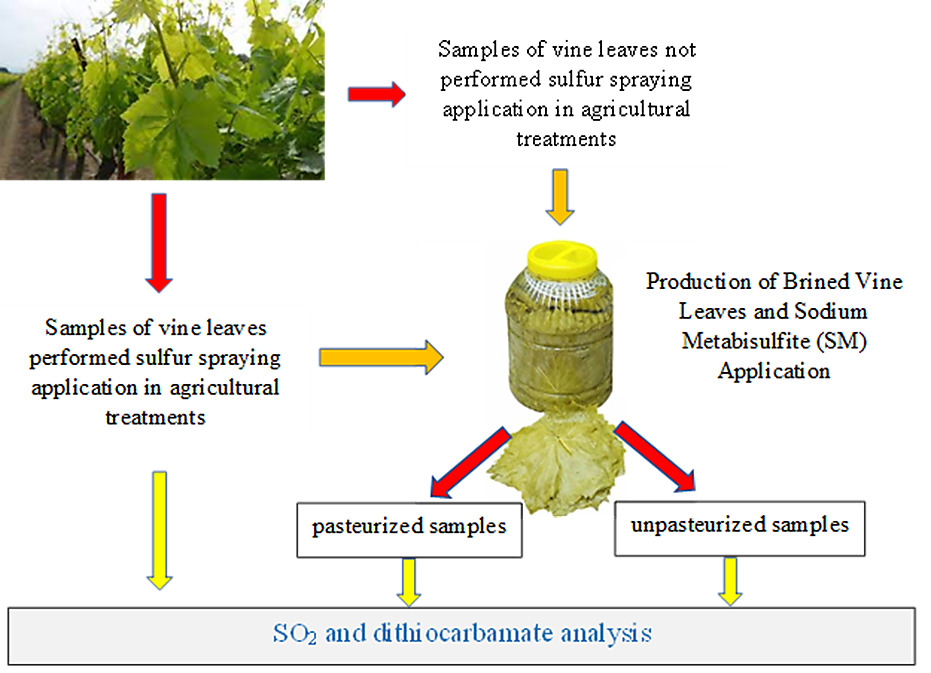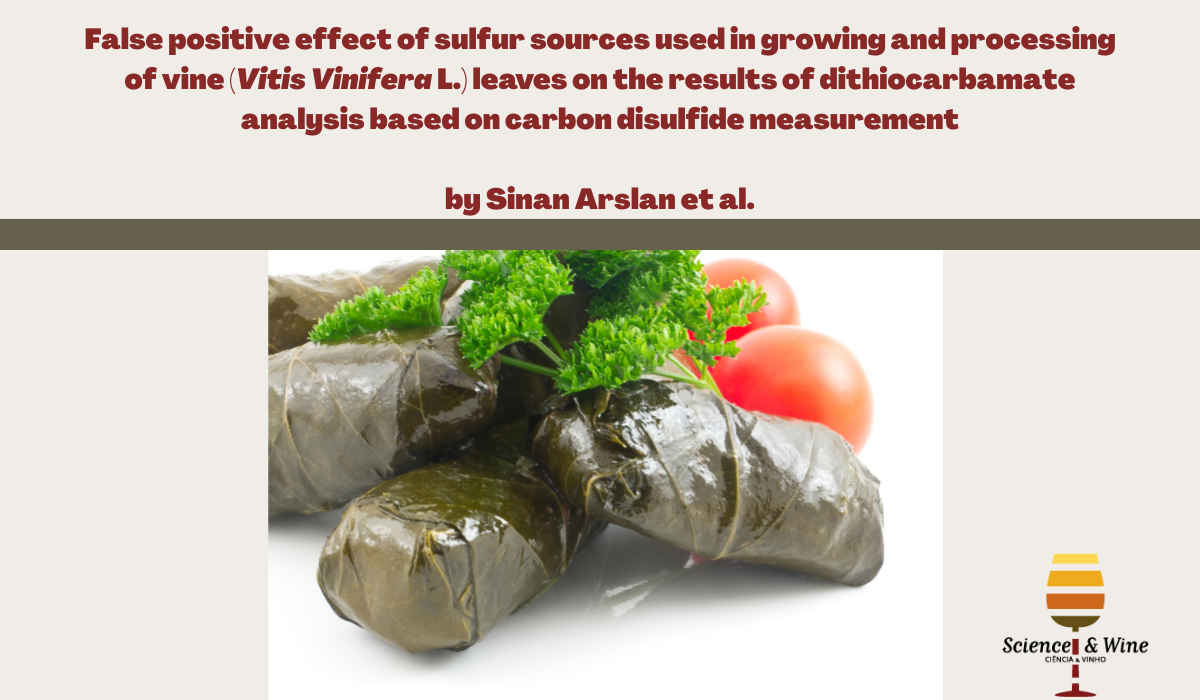By Sinan Arslan et al.

In Turkish culture and Mediterranean cuisine, stuffed vine leaves with meat and rice (Turkish name ‘Yaprak Sarması’) is one of the important taste with a history. Sustainability of vine leaves (Turkish name ‘Asma’) production is very important for this unique taste that can be enriched with different ingredients. For this reason, ensuring food safety in vine leaves and keeping pesticide residues within acceptable limits are among the most important duties of the states.

Figure 1. Stuffed vine leaves
Dithiocarbamates are defined as the group name for maneb, mancozeb, metiram, propineb, thiram, ziram and the residue definition is expressed in terms of total CS2. A group MRL is regulated for the control of all pesticides in the dithiocarbamate group in the pesticide MRL Regulations since specific analytical methods could not be developed for all pesticides in the group. Dithiocarbamate analysis is based on the principle of measuring the CS2 released from dithiocarbamate by hydrolysis of the matrix with the gas chromatography (GC) technique. However, various scientific studies revealed that sulfur, which comes from the nature of agricultural products and is used as a pesticide or additive in the production of food, could be turned into CS2 during dithiocarbamate analysis, thus causing false positive results.
Vine leaves, which are produced fresh, brined or fermented from the leaves of Vitis Vinifera in Türkiye are an important food. Sulfur is used as a pesticide and sulfur compounds can be used as additives during the growing and processing of the vine leaves. In our study, false positive dithiocarbamate results were investigated due to the nature of the vine leaves or the sulfur compounds used during the processing of the vine leaves. For this purpose, starting from agricultural production and controlling all processes, vine leaves, brined vine leaves and pasteurized brined vine leaves were produced.
During the production of vine leaves, elemental sulfur was used as a pesticide in liquid form, against pests. The effect of elemental sulfur application on dithiocarbamate analysis in the vineyard areas was found to be insignificant. However, dithiocarbamate was found at approximately 0.15 mg kg−1 in vine leaves produced by applying elemental sulfur in vineyard areas. These findings showed that the detected dithiocarbamate was due to the sulfur compounds found naturally in the vine leaves.
Sulfur compounds (e.g. sodium metabisulfite) can be used as additives to extend the shelf-life and provide colour development during the processing of the vine leaves after harvest. However, the use of additives is not standard and is not used by some food establishments. In our study, brined vine leaves were produced using sodium metabisulfite (SM) at a very low concentration (≤5 mg kg−1). According to our study findings, the effect of SM on dithiocarbamate results was limited since low concentrations of SM were used, but it relatively increased the average dithiocarbamate result. However, approximately 0.20 mg kg-1 dithiocarbamate result was found in the control samples of brined vine leaf without SM. This result was associated with the sulfur compounds in the drinking water and salt used in the production of brined vine leaves.
Pasteurization is sometimes preferred in the production of brined vine leaves that are subject to trade. Therefore, in our study, the effect of pasteurization on dithiocarbamate was also investigated. The pasteurization process, which can be applied in the production of brined vine leaves, was found to significantly reduce dithiocarbamate results due to the loss of volatile sulfur compounds.
The LODMRL for dithiocarbamate in the EU and Türkiye has been regulated as 0.05 mg kg−1 since the active substances belonging to the dithiocarbamate group are not approved as plant protection products in vine leaves. According to our study results, it has been seen that evaluating processed foods obtained by processing vine leaves or vine leaves according to this limit value may cause errors and cause unnecessary food loss. These results reveal the importance of enabling individual analysis of pesticides belonging to the dithiocarbamate group and supporting the dithiocarbamate results with these individual analysis.
Read all in https://doi.org/10.1080/19440049.2022.2093987
Dithiocarbamate, vine leaves, sulfur spraying, brined, pasteurization, false positive result, CS2 measurement.
Sinan Arslan
Ministry of Agriculture and Forestry, General Directorate of Food and Control, Ankara, Türkiye
Educational İnformation: Department of Analytical Chemistry, Cumhuriyet University, Sivas, Türkiye

